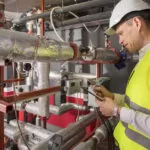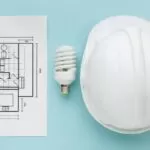Owning a building in Texas comes with its own set of responsibilities, and one crucial aspect you can’t afford to overlook is IECC compliance. The International Energy Conservation Code (IECC) sets the standard for energy efficiency in buildings, ensuring they meet specific criteria to reduce energy consumption and environmental impact. In this article, we will delve into the importance of IECC compliance checks, the key elements you need to focus on, and how staying compliant can benefit both your property and the environment.
Table of Contents
Why IECC Compliance Matters
Ensuring that your building is IECC compliant is not just a legal requirement; it is a strategic move that can have positive effects on your property and your bottom line. IECC compliance focuses on energy efficiency, which translates to lower utility bills. As a building owner in Texas, you understand the significance of managing operational costs, and energy expenses can be a substantial portion of your budget.
Furthermore, adhering to IECC standards contributes to environmental sustainability. Texas, with its diverse climate, is prone to extreme weather conditions, and energy-efficient buildings play a crucial role in reducing the overall carbon footprint. By meeting IECC guidelines, you contribute to the broader effort of creating a more sustainable and eco-friendly built environment.

Key Elements of IECC Compliance Check
- Insulation and Building Envelope:
One of the primary areas of focus in an IECC compliance check is the insulation and building envelope. This involves assessing the insulation levels in walls, roofs, and floors to ensure they meet or exceed the code requirements. Adequate insulation helps maintain a comfortable indoor temperature, reducing the need for excessive heating or cooling. This, in turn, leads to lower energy consumption and cost savings.
The building envelope, which includes doors, windows, and other openings, is also examined to minimize air leakage. Proper sealing of these openings prevents conditioned air from escaping and unconditioned air from entering, further enhancing the building’s energy efficiency.
- Lighting Systems:
Efficient lighting systems play a pivotal role in IECC compliance. Upgrading to energy-efficient lighting technologies, such as LED bulbs, not only meets the code requirements but also significantly reduces electricity consumption. This not only benefits your operational costs but also contributes to the overall energy efficiency of your property.
IECC compliance may also involve the installation of lighting controls, such as occupancy sensors and timers, to ensure that lights are only in use when needed. Implementing these measures not only aligns your building with regulatory standards but also demonstrates your commitment to sustainability.
Benefits of IECC Compliance for Building Owners
- Cost Savings:
IECC compliance is a proactive approach to cost savings. While the initial investment in energy-efficient upgrades may seem significant, the long-term benefits far outweigh the costs. Lower utility bills, reduced maintenance expenses, and potential tax incentives contribute to a positive return on investment over time.
- Enhanced Market Value:
In the competitive real estate market in Texas, having an IECC-compliant building can give you a competitive edge. As energy efficiency becomes a growing concern for tenants and buyers alike, a certified energy-efficient property stands out. This can enhance the market value of your building, attracting environmentally conscious tenants and investors.
- Environmental Stewardship:
Beyond financial considerations, IECC compliance allows you to contribute to environmental stewardship. By reducing energy consumption and promoting sustainable practices, you play a role in mitigating climate change and creating a more environmentally friendly community. This aligns with the increasing demand for eco-conscious spaces and positions your building as a responsible and forward-thinking property.
Conclusion
As a building owner in Texas, staying on top of IECC compliance is not just a regulatory requirement; it is a strategic decision that can benefit your property in numerous ways. From cost savings to enhanced market value and environmental stewardship, IECC compliance aligns with the evolving priorities of tenants, buyers, and the broader community.
Regularly conducting IECC compliance checks and implementing energy-efficient measures positions your property as a responsible and sustainable asset. In a landscape where energy efficiency is becoming a key consideration for businesses and individuals alike, ensuring your building meets or exceeds IECC standards is a solid investment in the present and future success of your property.




